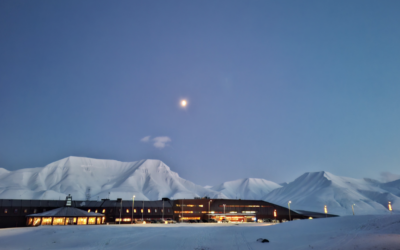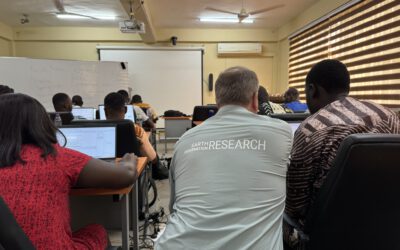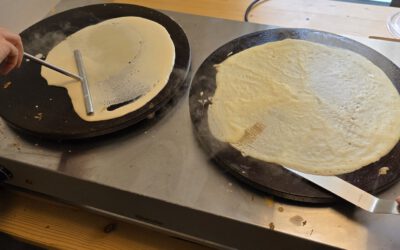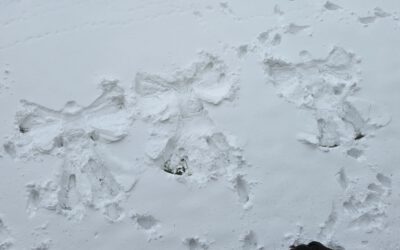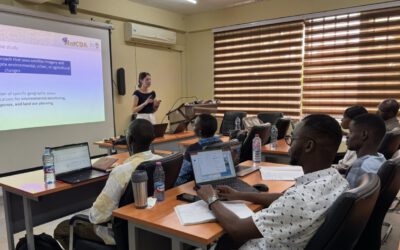 our colleague Martin Wegmann was invited to talk at the IZW (Institute for Zoo and Wildlife Research) in Berlin about “Remote Sensing in Ecology and Conservation”. The talk was very well perceived and many discussions afterwards showed the high potential of remote sensing for wildlife research.
our colleague Martin Wegmann was invited to talk at the IZW (Institute for Zoo and Wildlife Research) in Berlin about “Remote Sensing in Ecology and Conservation”. The talk was very well perceived and many discussions afterwards showed the high potential of remote sensing for wildlife research.
Biodiversity analysis and conservation decision relies on adequate and meaningful data that are available on a long-term and global basis. Such environmental information need adequate spatial and temporal resolution and remote sensing data does provide a wide range of potentially suitable data sets. Various groups use remote sensing data but a biodiversity and conservation focus to improve the availability, acquisition, coordination and delivery of relevant information can still be improved. This is especially important since the use of remote sensing has increased widely over the past decades, and therefore a better interdisciplinary collaboration will foster the utilization of remote sensing in conservation. One approach to improve the understanding of needed parameters for biodiversity monitoring is through Essential Biodiversity variables (EBVs), which provide guidance to observation systems as to what and how to measure key aspects of biodiversity. The EBV concept was further developed to suit remote sensing specific needs and a first set of remote sensing EBVs (RS- EBVs) have been developed. Here we present multi-scale, multi-sensor and multi-temporal remote sensing data analysis which do provide needed and crucial information for ecological analysis. Especially within conservation applications, species distribution analysis or animal movement analysis, the spatial and temporal context of the environment is highly important and can be derived through dedicated measures.
We outline the activities aiming to improve remote sensing usage in conservation, as well as its application.



